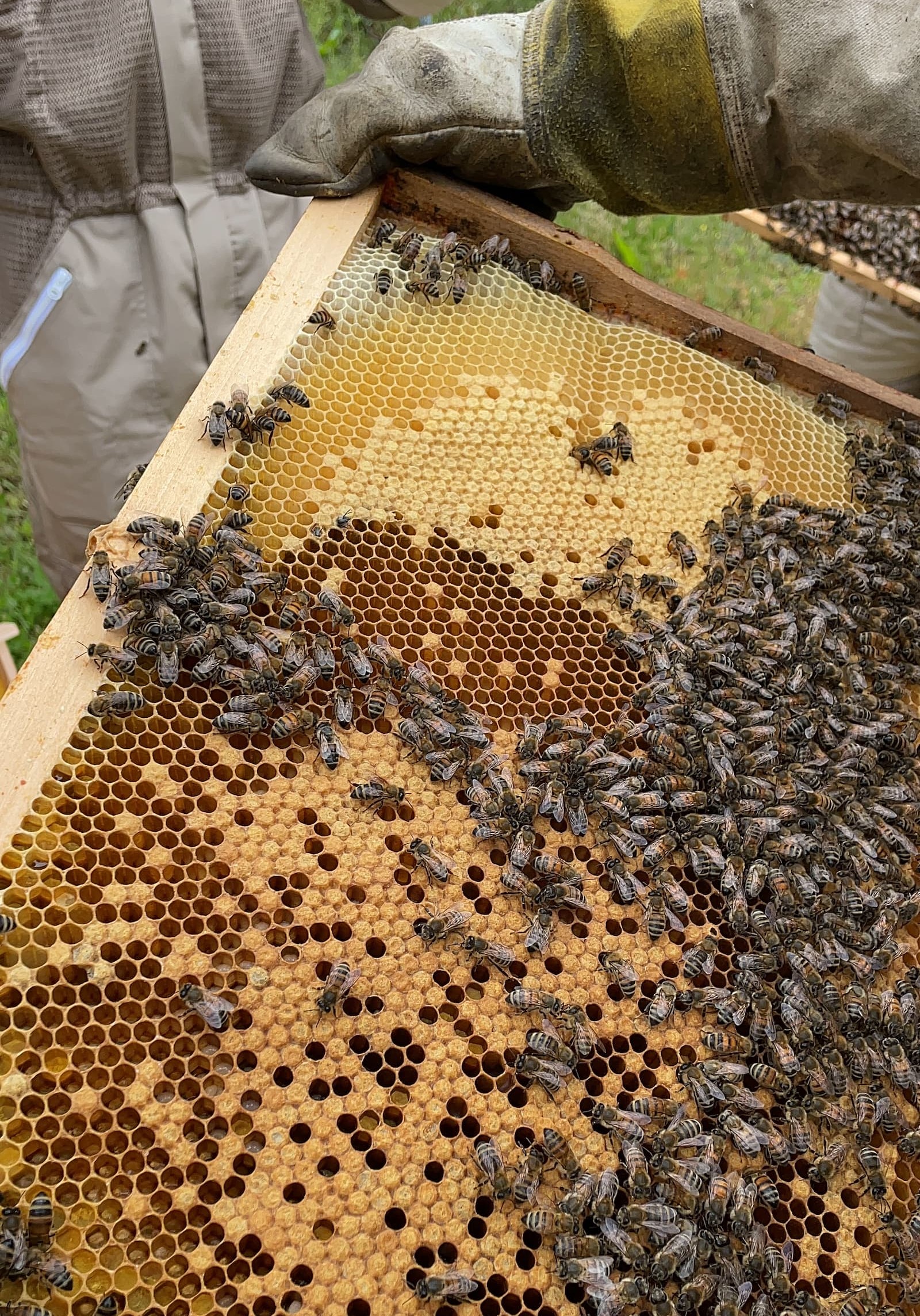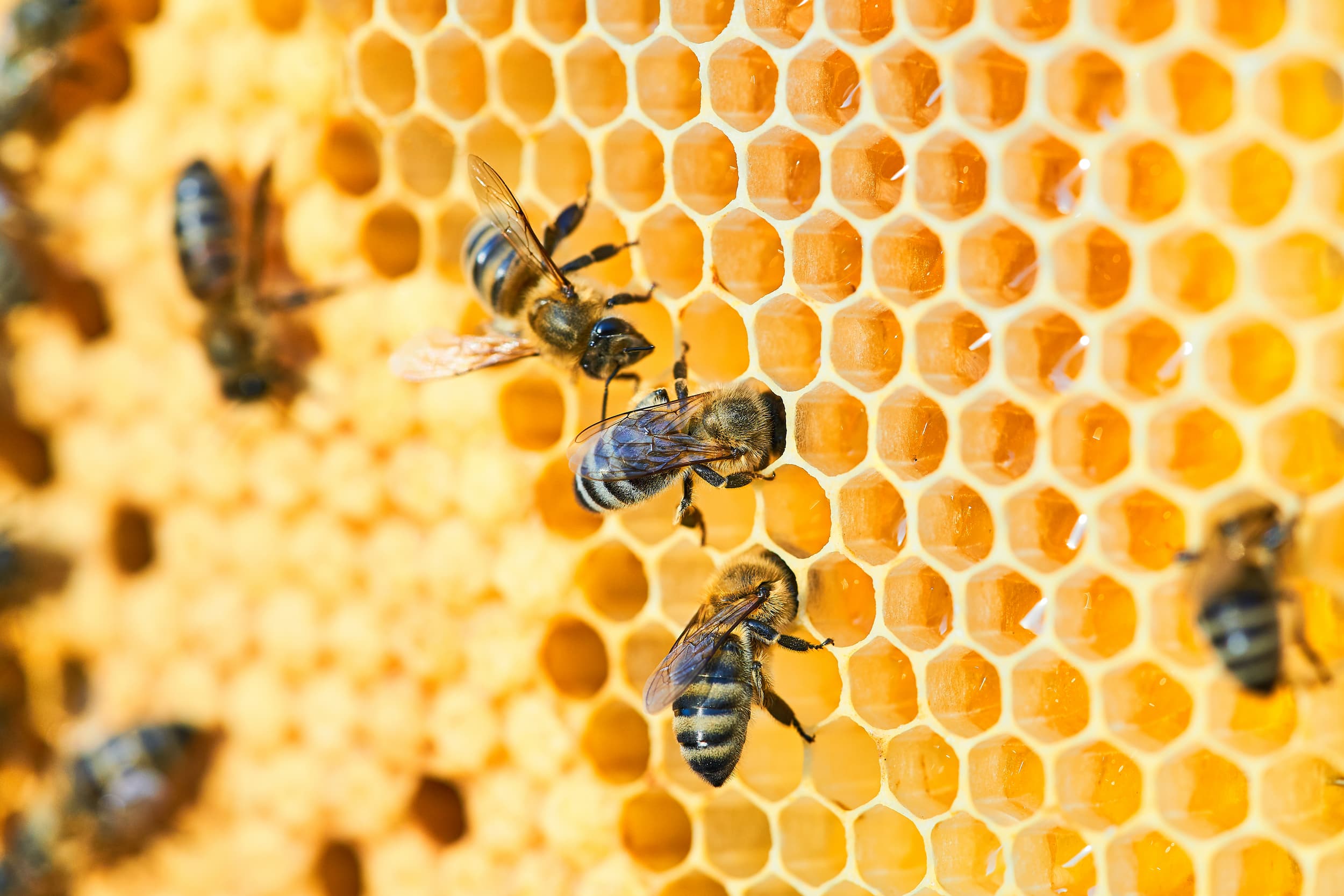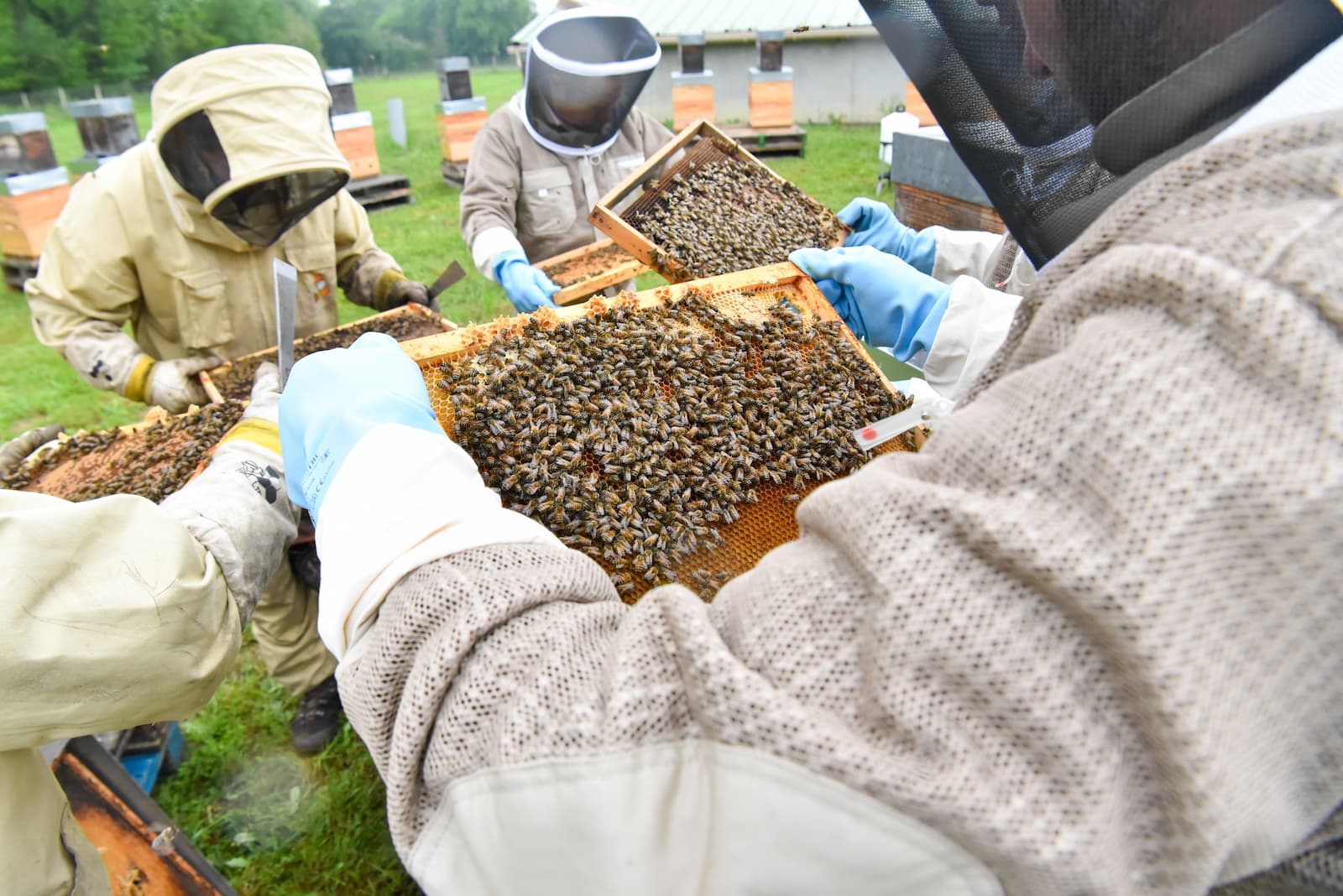BEES : ESSENTIAL LINKS OF BIODIVERSITY
We mainly know bees for their productions such as honey and royal jelly. But bees, like other wild pollinators, have a much more important role. They are an essential link in biodiversity. By fertilizing flowering plants, they participate:
- the reproduction of plant species,
- the fruiting of these species, which feed many animals (birds, insects, mammals) and micro-organisms,
Beekeeping and agriculture are inseparable. 84% of plants grown in Europe are pollinated by bees and pollinating insects, thus contributing to agricultural production in quantity and quality.
THE ROLE OF BEES ON AGRICULTURAL PRODUCTION
“A greater number of bees means more reproduction of flowering plants, including in agricultural production. They are the basis of all food chains”,explains Olivier Lambert, director of the veterinary center for wildlife and ecosystems at the Oniris veterinary school, and an ecologist by training.
In addition to their environmental role, bees have an essential economic weight.

“The beekeeping sector is not a sector like the others. It favors the other plant productions of the farm and thus makes it possible to increase the productivity of the crops.”says Natalie Belzic, beekeeping project manager at the Pays de la Loire Chamber of Agriculture.
MAISADOUR WORKS ON AN AMBITIOUS BEEKEEPING PROJECT
The Cooperative has installed hives for several months in an experimental station in Benquet.
The goal ? Test the feasibility of a project to set up bees among Group members to diversify their production.
Indeed, the members of the Group would find several advantages in the installation of pollinators on their plots: increased crop productivity, diversification of activities, additional income… and HONEY!
From next September, training sessions will be set up to teach interested members the keys to beekeeping: between good practices and management of a beekeeping park, the subjects are numerous !


